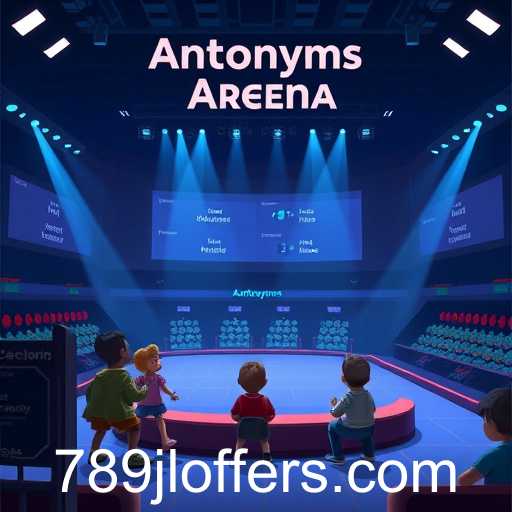Discover how 'Antonyms Arena' turns learning opposites into an engaging challenge for all ages on a popular gaming website.
In the ever-evolving landscape of online entertainment, game developers continuously seek new and innovative ways to educate and amuse their audiences. One such innovation is the introduction of 'Antonyms Arena,' a thrilling game category available on a popular educational gaming website that uses the intriguing keyword '789jl.' This game concept has successfully combined the educational benefits of language learning with the sheer excitement of online gaming, appealing to a broad demographic that includes children, parents, educators, and gaming enthusiasts.
'Antonyms Arena' is a one-of-a-kind game that transforms learning antonyms – words that are opposites – into a fun and competitive experience. The aim is to challenge players to identify pairs of words with opposite meanings from a list of randomly scrambled words. As players progress through increasingly difficult levels, they must be quick on their feet, responding accurately and swiftly to gain points and advance further. It's a game that seamlessly blends cognitive skills enhancement with healthy competition.
The use of the keyword '789jl' in accessing the game may seem cryptic at first, but it forms part of the unique digital branding strategy by the host website, creating an air of mystery and exclusivity around the gaming experience. This element has contributed to the growing curiosity and interest among internet users who seek out 'Antonyms Arena' as both a teaching tool and a leisure activity.
With each level, players are introduced to new antonym pair challenges, often themed to match varying difficulty levels. For example, early levels may include common word pairs such as 'hot and cold' or 'big and small,' while advanced levels might challenge players with complex or less familiar antonyms. These dynamics not only aid in vocabulary enhancement but also boost critical thinking and reflexes, making it much more than just a word game.
Feedback from users highlights the game's effectiveness as a learning tool, where even adults find themselves engaged in the challenge of identifying nuanced opposites. 'Antonyms Arena' also supports multiplayer modes, fostering a virtual community where players can compete or collaborate, enhancing both social interaction and mutual learning.
Parents and educators are particularly enthusiastic about incorporating the game into educational curricula. The interactive format supports different learning styles and provides a platform that children and students naturally gravitate towards, thereby promoting learning outside traditional classroom settings. Moreover, by integrating game achievements with language education, 'Antonyms Arena' fulfills both entertainment and pedagogical goals.
In summary, 'Antonyms Arena' exemplifies the modern intersection of gaming and education. It transforms the usually mundane task of memorizing antonyms into an engaging and stimulating experience that captivates a diverse audience. Whether for fun, competition, or learning, the game invites players to expand their vocabulary in a dynamic and enjoyable way, ensuring that learning opposites will never be the same again.




